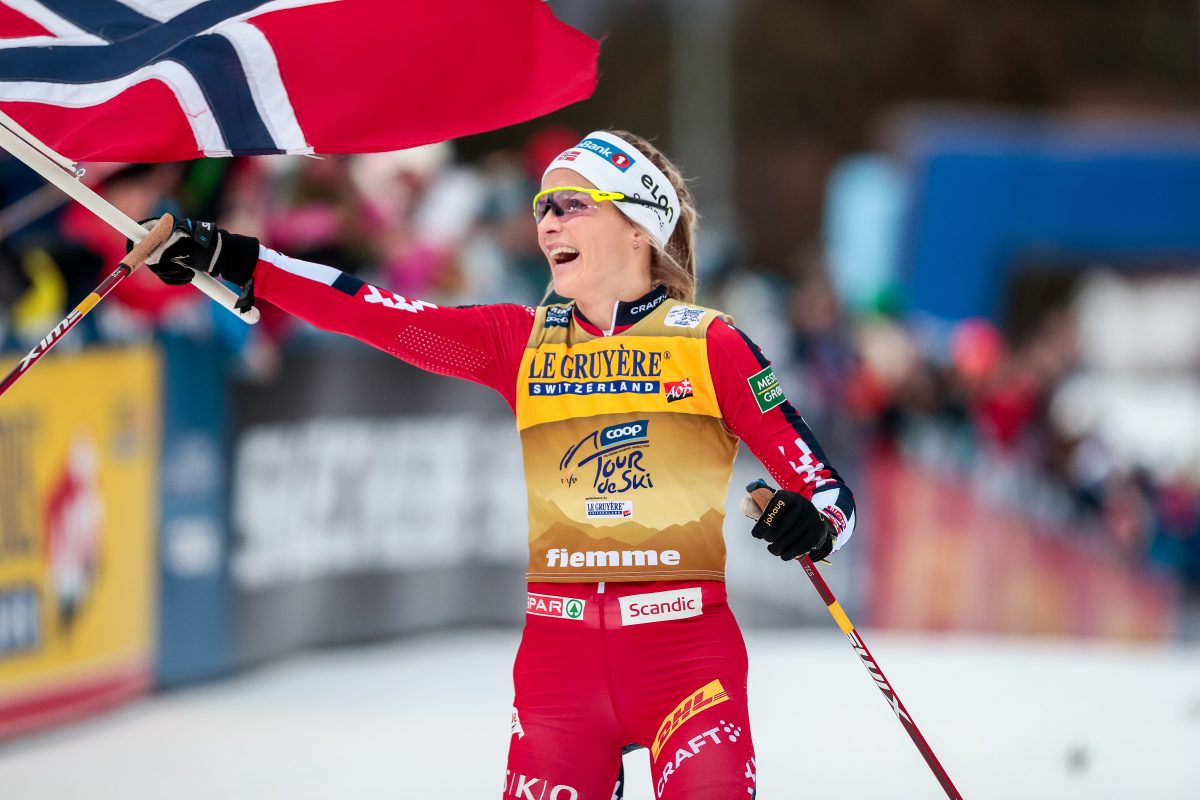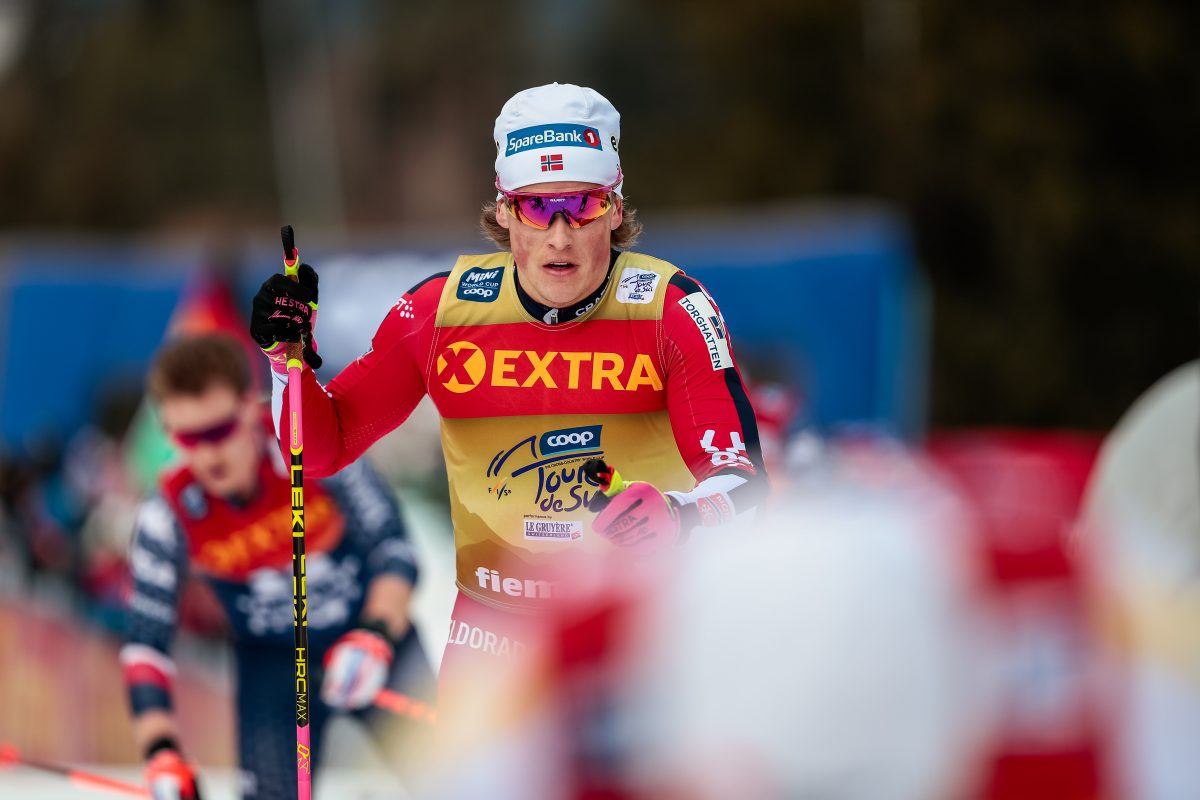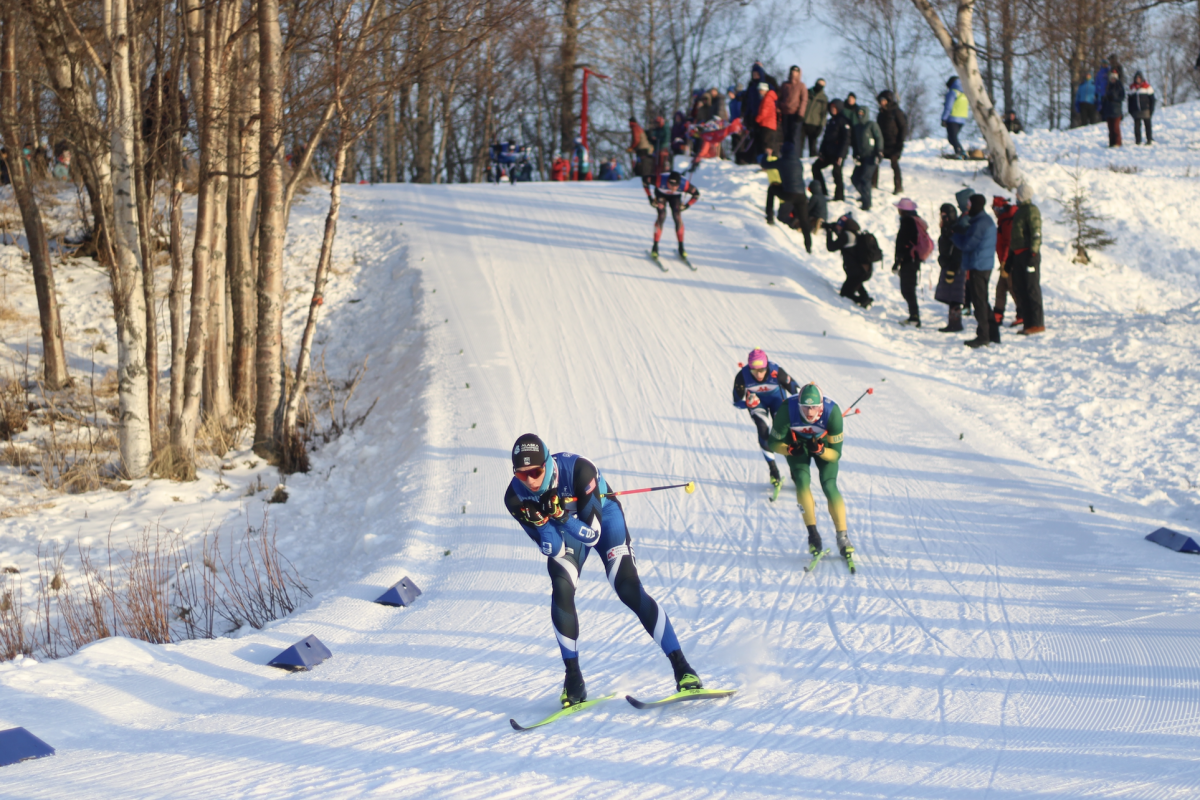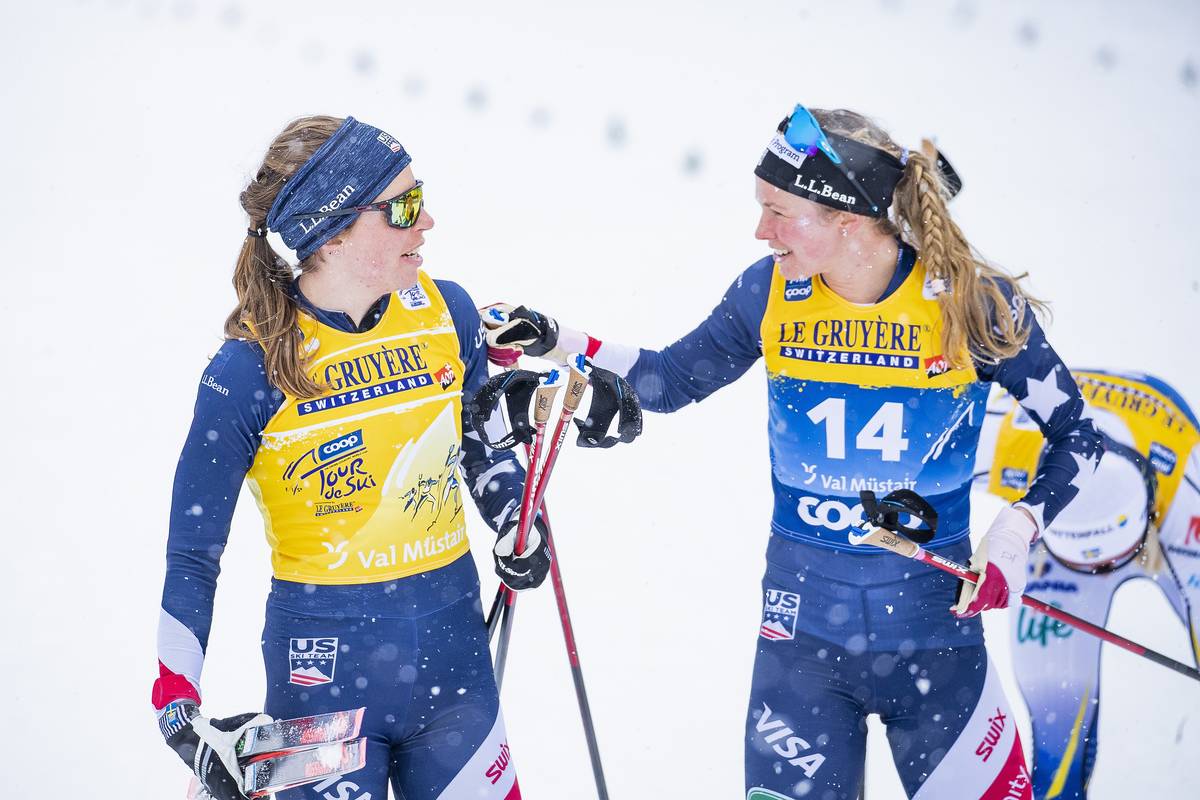
PLANICA, SLOVENIA — Anyone who knows Rosie Brennan, and the ups and downs of her professional cross-country ski racing career, can relate to her mother’s experience at the World Championships here.
Walking among the crowds in U.S.-themed clothing, Wiggy Brennan heard the same thing, over and over, from European fans: “We love Jessie Diggins!” — a reference to Rosie Brennan’s gold-medal winning teammate.
“And I say, ‘Okay. But what about Rosie?’” Wiggy said.
That question — what about Rosie? — has never been more relevant than in Planica, where Brennan and Diggins both skied to standout results, in ways that highlighted the profound differences between them.
Diggins, now 31, is a superstar. She started winning medals a decade ago, and after earning two more here, she now owns nine of them from the Olympics and World Championships. Her bubbly personality and results have earned her national endorsement deals and a huge fan base, and her teammates sometimes call her the “sparkle chipmunk.”
[Read more: Jessie Diggins won gold. Now, she and all adjacent Americans are basking in European adulation.]
Brennan, 34, is not a sparkle chipmunk — she’s a self-described introvert. And her success was never assured: She was twice cut from the U.S. Ski Team, and her first international World Cup podium didn’t come until late in her career, just two seasons ago.
Brennan has also come heartbreakingly close, but has never achieved, the big-time results on Diggins’ resumé. In the past 13 months, Brennan has placed fourth, fifth and sixth in individual events at the Olympics and World Championships — two seconds, five seconds and three-and-a-half seconds from the podium.
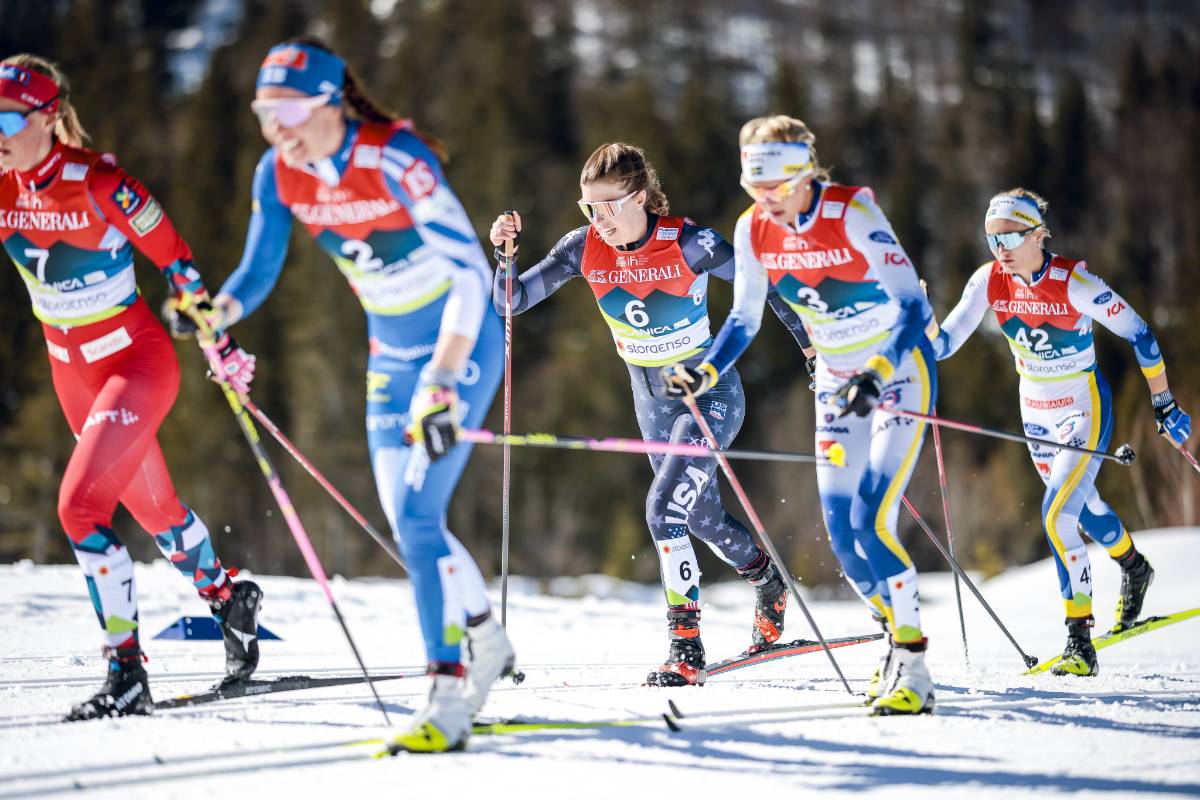
In Saturday’s 30-kilometer event in Slovenia, Brennan skied nearly the entire race in a tiny chase pack that was gunning for the silver and bronze. After leading the group for a significant chunk of the race, Brennan faded on the homestretch — leaving her supporters simultaneously thrilled by her proximity to the medals and a little devastated by the result.
Brennan’s friends and fans have nothing but praise for Diggins. But they also don’t want Brennan to go unnoticed.
“It’s a story where I’m like, ‘Gosh, I wish this could just catch fire.’ Because every human can relate,’” said Sadie Bjornsen, a close friend and former teammate of Brennan’s. “Ninety-nine percent of the time you’re fourth. That’s just the reality of life. And the way you keep coming back from that is what is really inspiring.”
Diggins, after winning two medals at World Championships, left Slovenia early to prepare for an upcoming race in Norway this weekend. But in an Instagram post after Saturday’s race, she called Brennan “my hero” and sent an audio message to FasterSkier in which she joined the chorus of people celebrating her.
Diggins said she wants to make sure that people know about work Brennan does behind the scenes — mentoring young athletes, working with a program that teaches kids to ski in rural Alaska and serving as an athlete representative to the U.S. Ski Team’s parent organization. She also described Brennan’s effort in Saturday’s 30-kilometer race as “one of the most inspiring, gutsy things ever.”
“It’s up to her to decide how she feels. And we just get to be proud of her and cheer for her,” Diggins said. “That was hero skiing out there, and I think everyone saw that.”
Brennan, for her part, said that Diggins’ best performances lift her up, too.
“It is inspiring to me to see her reach those levels,” she said in an interview. “And I hope that we can still learn from each other, and take little pieces that fit into how we do things, and make us both better.”
The frequent presence of both Diggins and Brennan in the lead pack of top-level races nonetheless invites questions about whether there are tensions between them.
The two aren’t best friends — ”I think they aren’t two peas in a pod,” said Tyler Kornfield, Brennan’s boyfriend — but coaches, teammates, and others close to them say they’ve developed a working relationship that elevates them both.
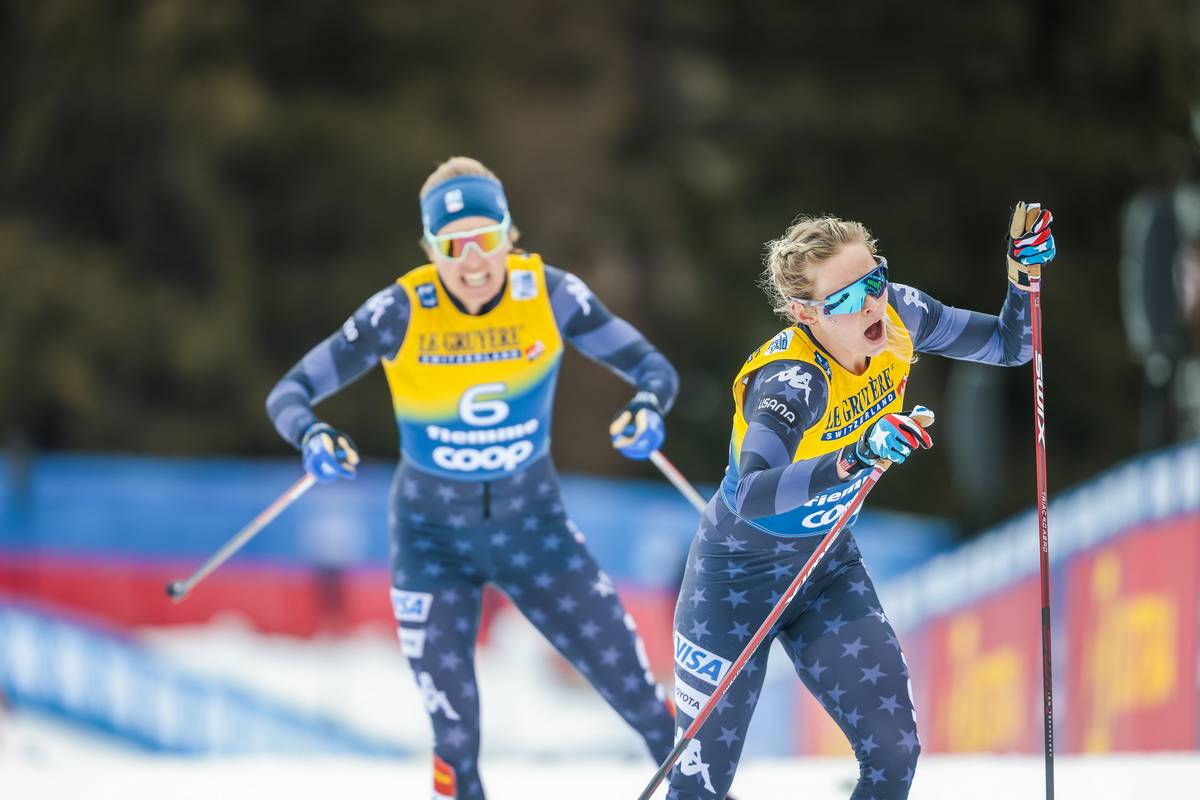
“I’m sure, over the years, they’ve had their heated thoughts. But when I see them together — when I see the entire team together — it’s professional. It works really, really well,” said Kornfield, who’s also a professional skier, in a phone interview. “They come together every day to make the team stronger.”
One example was after the team sprint at World Championships.
American coaches chose to start Diggins and another American, Julia Kern, instead of Brennan, who paired with Diggins to place fifth in the same event at the Beijing Olympics.
After Diggins and Kern won a bronze medal, with Brennan on the bench, Matt Whitcomb, the U.S. Ski Team’s head coach, said he watched Brennan knock on Diggins’ door and congratulate her. Diggins, meanwhile, sent Whitcomb a text aimed at Brennan and her three teammates Saturday, just after their hard-fought finishes: “So proud of you girls for an absolutely gutsy, courageous race out there.”
“They have an immense amount of respect for each other,” Bjornsen said. “Which I think is really cool. Because they are so different — like, probably the most different you could be and successfully be teammates.”
Asked about those differences, Brennan said she wishes she had more championship medals, like the ones in Diggins’ trophy case. But Brennan and those around her said she also benefits from having Diggins as a teammate.
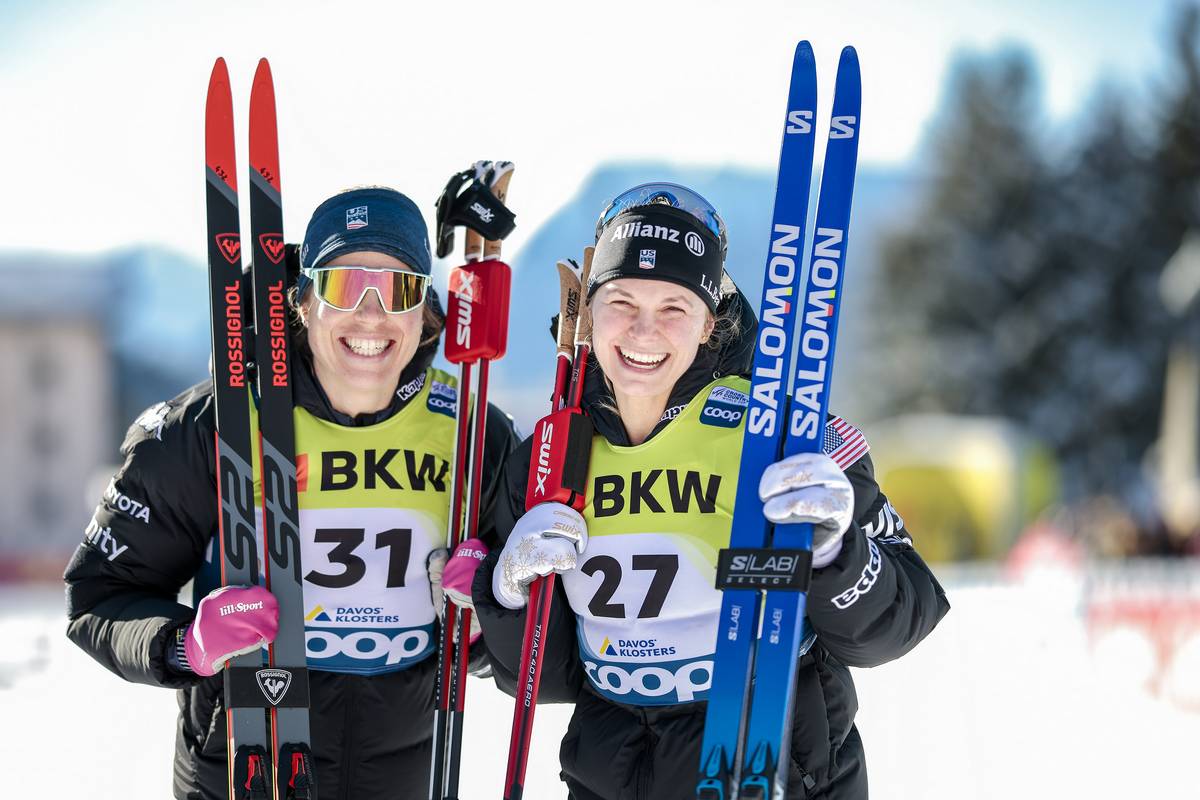
“Maybe it’s clichéd to say Jessie is Rosie’s biggest motivator,” Kornfield said. “But anxiety is a powerful tool, and when one of your teammates is working incredibly hard across the country, and you know about it and hear about it every single day, it’s going to make you double down and focus more.”
Brennan said she hopes the successes that she and Diggins have each achieved, coming from two different backgrounds, makes them models for younger athletes.
“They can take little bits and pieces of both of us and find themselves,” Brennan said. “We are such opposites, and we’re both still making it work. And I hope, anyway, that that provides two solid examples for all the younger girls on the team of just being different and still having success — even if Jessie’s success is, like, through the moon.”
Brennan’s teammates confirmed that they look up to her, as well as to Diggins. Julia Kern, 25, said Brennan’s success late in her career was on her mind in the middle of Saturday’s 30-kilometer race — a 90-minute effort in which Kern finished 27th.
“I was literally thinking about that when I was charging up the hills, and I saw her charging at the front,” Kern said. “I was like, ‘This is training for maybe, hopefully, skiing like Rosie one day.’”
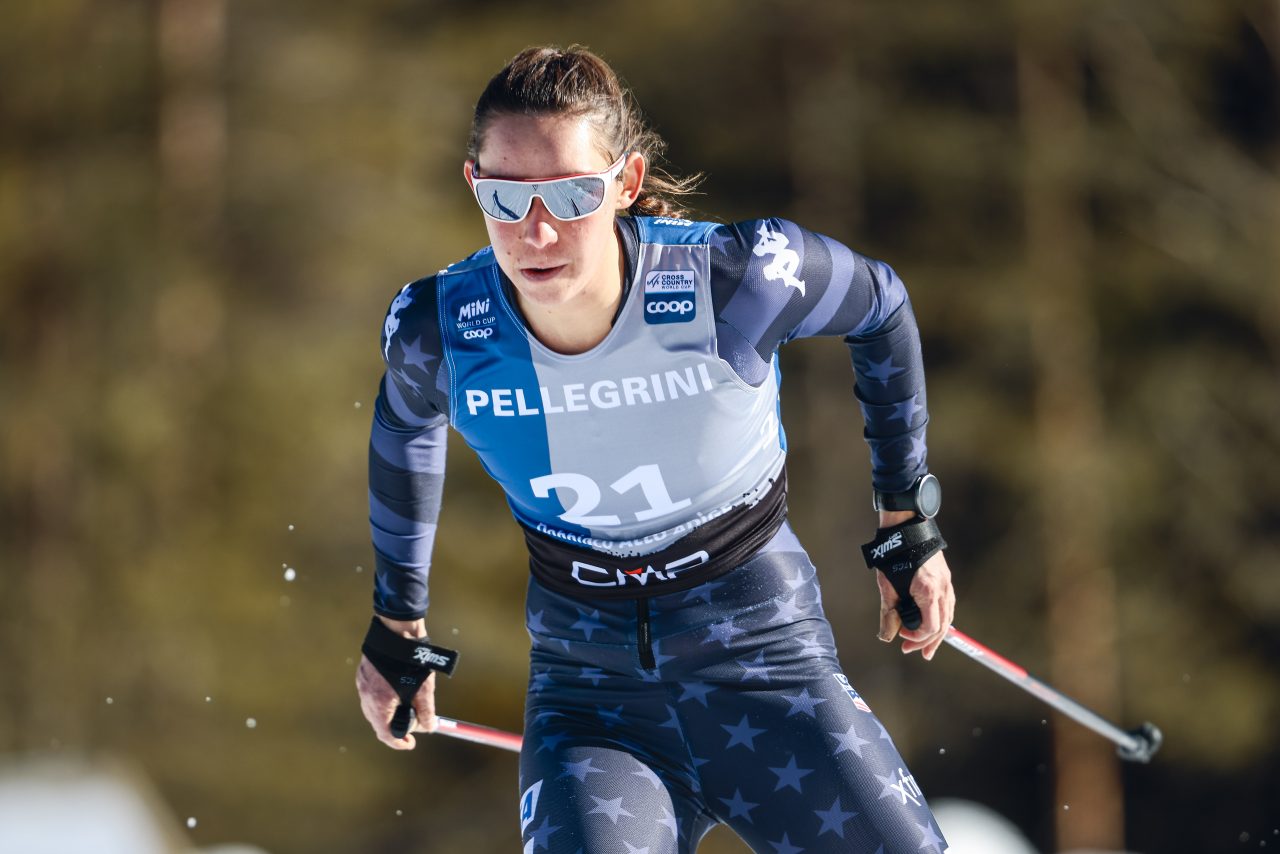
Bjornsen, Brennan’s friend and old teammate, said she and other ex-racers she knows were crying as they watched Saturday’s race.
Those near-podium finishes, Bjornsen said, highlight how Brennan is still trying after so many so-closes.
“It’s such a theme of Rosie’s story: Knock me down, I’ll bend. But I don’t break,” Bjornsen said.
The value of patience and persistence in cross-country skiing was one of the big take-home messages from the World Championships in Slovenia.
Beyond Brennan’s performances, there was Norwegian skier Pål Golberg, who endured some excruciating failures and highs and lows over his career before a resurgence this year.
Goldberg first raced at a World Championships in 2013. But he didn’t win an individual medal until he got two in Slovenia this year — including a stunning gold in Sunday’s 50-kilometer marathon.
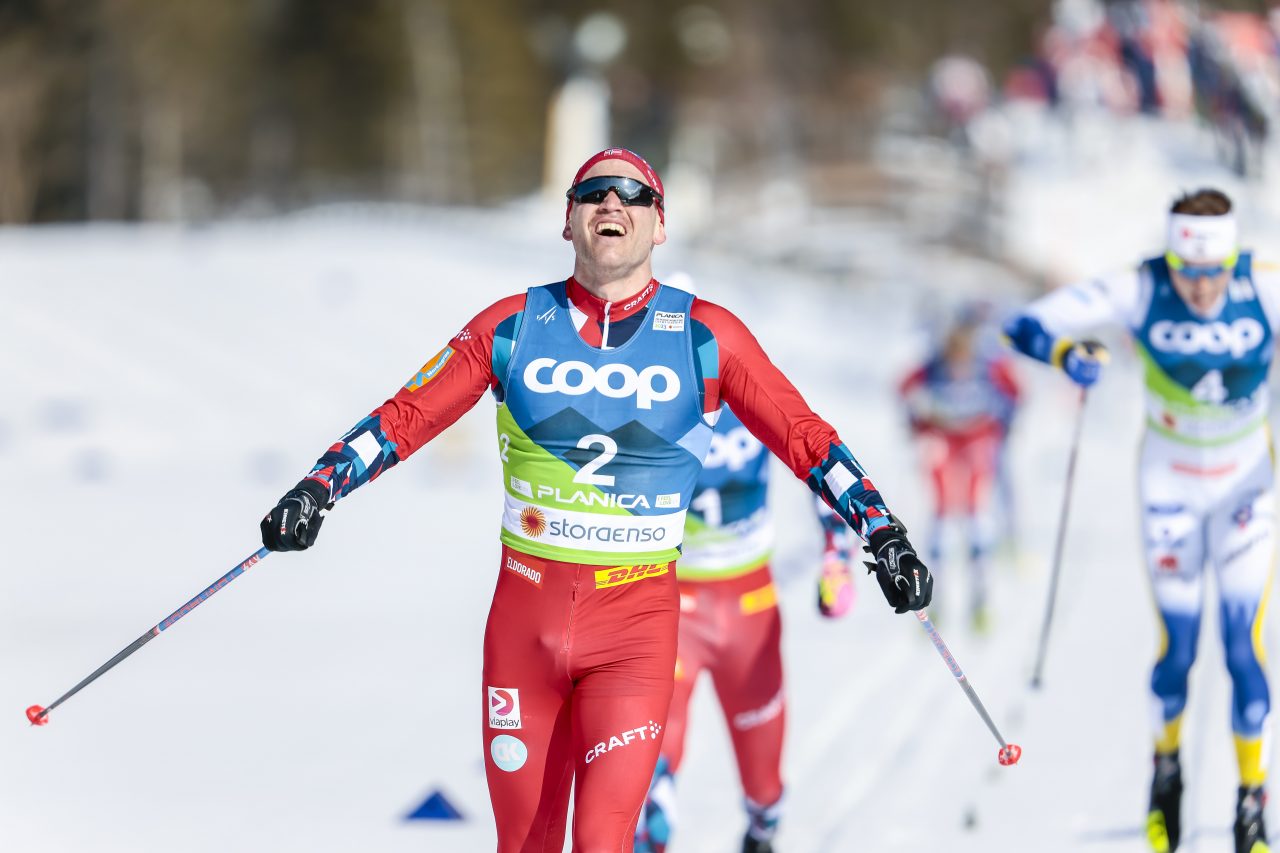
“In these endurance sports, often, you need to go through some years. You need to have the patience and the stamina to just push on. And that’s hard,” Eirik Myhr Nossum, one of the Norwegian coaches in Slovenia, said in an interview. “To do this year after year, to have the financial means, to have the motivation to do the work, to travel — of course, that’s hard. And for most, it doesn’t pay off.”
Brennan’s supporters want to see her keep racing and think she still has room to grow. Whitcomb, the U.S. coach, said he told her immediately after Saturday’s race that he wants to see her at the next world championships, in Norway in 2025, and at the 2026 Olympics.
“We want that medal for her so badly. Just, validation,” he said.
Brennan’s coach back in Alaska, Erik Flora, said that her skiing is still changing every year — like her technique and her skills on downhills.
“Can there be more technical development? I think yes,” Flora said. “Physically, can there be changes? I think so, too.”
Brennan has changed her training and racing framework in the past few seasons to make the months she spends in Europe each year more sustainable and stable.
She’s developed a good relationship with her wax technician, Bjørn Heimdal, and is working more closely with her ski sponsor, Rossignol. And Kornfield lived in Europe this winter, racing ski marathons out of a home base in Italy, instead of back in the U.S.
“The same time zone is huge,” Kornfield said. “It helps a lot.”
Flora, Brennan’s coach, is still 10 time zones away in Alaska, however. Asked after Saturday’s race if she would be back at the next world championships, Brennan didn’t have an answer.
“I have no idea. It’s been too much to think about during the season,” she said. “I’m going to take some time in the spring and think about it.”
But Brennan also acknowledged that coming so close to the podium gives her a little extra motivation to stick around. “God,” she said. “I definitely want a medal.”
Nathaniel Herz
Nat Herz is an Alaska-based journalist who moonlights for FasterSkier as an occasional reporter and podcast host. He was FasterSkier's full-time reporter in 2010 and 2011.

